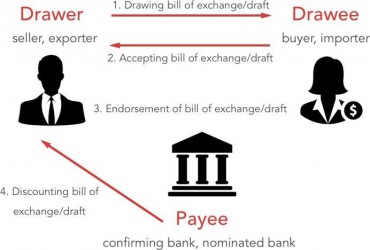DEFINITION OF ACCEPTOR
The one who accepts a protested bill of exchange on which he or she is not already liable for the honor of some party to the bill.The acceptor being liable to the holder and all parties subsequent to the one for whose honor he or she accepts. Drawee of a bill of exchange is one who accepts it by signing on the face of the bill.
Thereby, he or she accepts the liability for payment of the bill on or before the bill’s maturity date, according to Merriam-Webster Dictionary.
WHAT IS IT IN ESSENCE
The maker of a bill of exchange or cheque is called the “drawer.” Because of that, a person directed to pay is called the “drawee.” When in the bill or in any endorsement there on the name of any person is given in addition to the drawee to be resorted to in case of need, such person is called a “drawee in case of need.”
The acceptor is the third party who accepts responsibility for payment in a bill of exchange. The bill of exchange will generally have three parties: the drawer, the drawee, and the acceptor.
HOW TO USE
The person who accepts a bill of exchange drawn on them is the acceptor. Until they accept, they are called the drawee. By accepting the bill the acceptor undertakes to pay the person presenting the bill the face value of that bill.
On payment, the acceptor retires the bill. Where such subject is the initial provider of the credit, by arrangement, on the maturity of the bill, they require the borrower to place their funds on an amount equivalent to the face value of the bill.
In connection with this: ACCEPTANCE CREDIT

